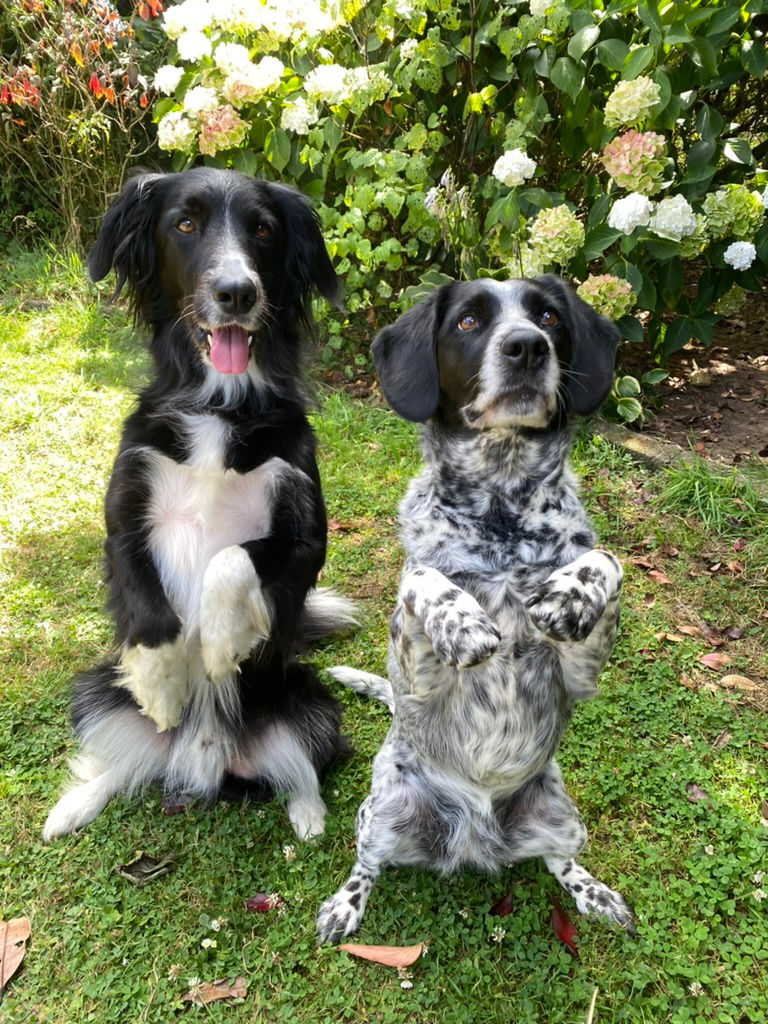Are We Really Training Dogs… Or Teaching Them?
- jsoc24
- Aug 26, 2025
- 3 min read
When we think about dogs, the word that comes up most often is training. Puppy training, obedience training, agility training. But here’s a thought: what if training isn’t the best way to think about it at all?

We don’t train our kids at school. We don’t send them to “obedience class” to learn how to tie their shoes or button a shirt. We teach them. We show them. We guide them step by step until the skill makes sense in their little world - Education.
And yet, with our dogs, we default to the word training, which can sound more about compliance than understanding. What if we thought of ourselves as teachers, educators, coaches, or guides instead?
Teaching vs Training
Think back to when you first learnt to ride a bike. Flat tarmac, no cars, perhaps with someone steadying the back wheel. Once you'd mastered that, you might have moved to riding on the road with more distractions and then on to downhill mountain biking. The skills are all related, but each new level needs extra practice, a few wobbles, and someone cheering you on or coaching you on what you should work on to improve.
It’s exactly the same for our dogs. A sit in the lounge is one thing. A sit at the park with kids, ducks, and other dogs around? That’s your downhill mountain biking moment where they need support and coaching on how to transfer those skills to this new, more complex environment.
Learning extends beyond just the basics. Similar to how we need to refresh our memory on checking blind spots or reviewing road rules before a driving test, dogs also require refreshers. Skills can diminish if they aren't practiced. A recall that was perfect the last time you went to the beach might need some fine-tuning before it works again, particularly if it's been some time since you've ventured beyond your local walks.
Dogs as Lifelong Students
If we see dogs as lifelong students, we give them (and ourselves) more grace. They’re not robots who should automatically “know better.” They’re learners, adapting to the human world with our help.
We’re teaching them what’s appropriate, what’s safe, and how to access the things they’d like, whether that’s playing with another dog, exploring a new smell, or earning a tasty piece of food.
More learning is needed in the early months and years (just as kids have a heavier load at school when they’re young), but education never stops. In fact, new learning is one of the most enriching things we can give our dogs throughout their lives.
Why This Shift Matters
When we move from thinking of ourselves as trainers to thinking of ourselves as teachers, coaches, or educators, everything softens. There’s more empathy. More patience and more willingness to work with our dogs rather than against them.
After all, would you rather have a drill sergeant telling you what to do or a coach working with you at your own speed, helping you to develop the necessary skills for success through trust and understanding?
The Takeaway

So here’s my challenge: next time you catch yourself saying “training my dog,” swap it for “teaching” or “coaching.” Notice how different it feels. It’s lighter, kinder, more human. And I think your dog will thank you for it.
Dogs truly don't require military-style boot camps. What they most need are guides, coaches, and most importantly, us, their favourite teachers.
✨ At Active Dogs NZ, that’s exactly the approach we take. We use games, choice-based learning, and positive reinforcement to help you teach your dog how to thrive in our human world. If you’d like to explore this kinder way of working with your dog, come and join one of our classes, call for a chat or book a private coaching session. Every age and stage, agility, scentwork, hoopers, flygility and tricks!
021442018



Comments